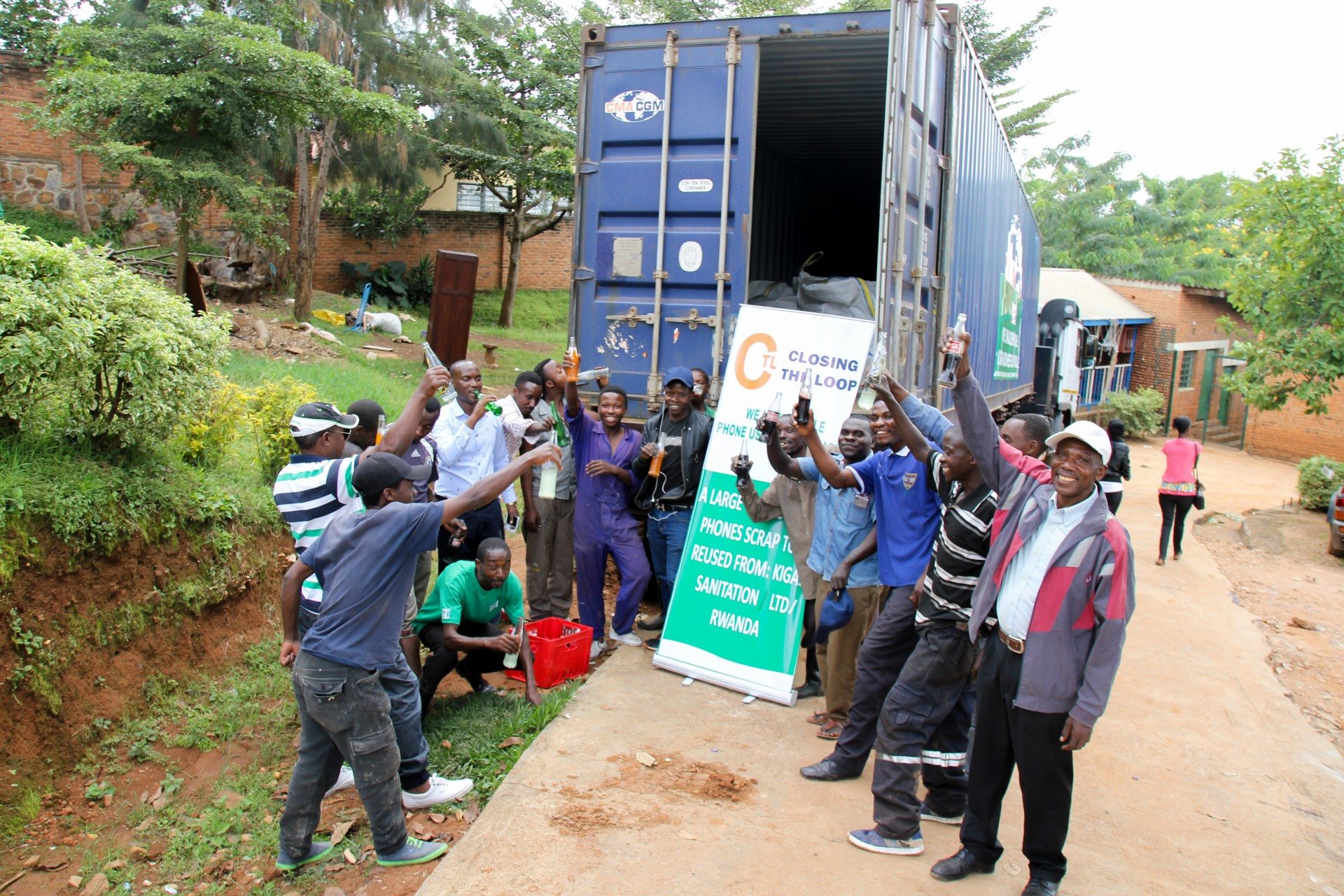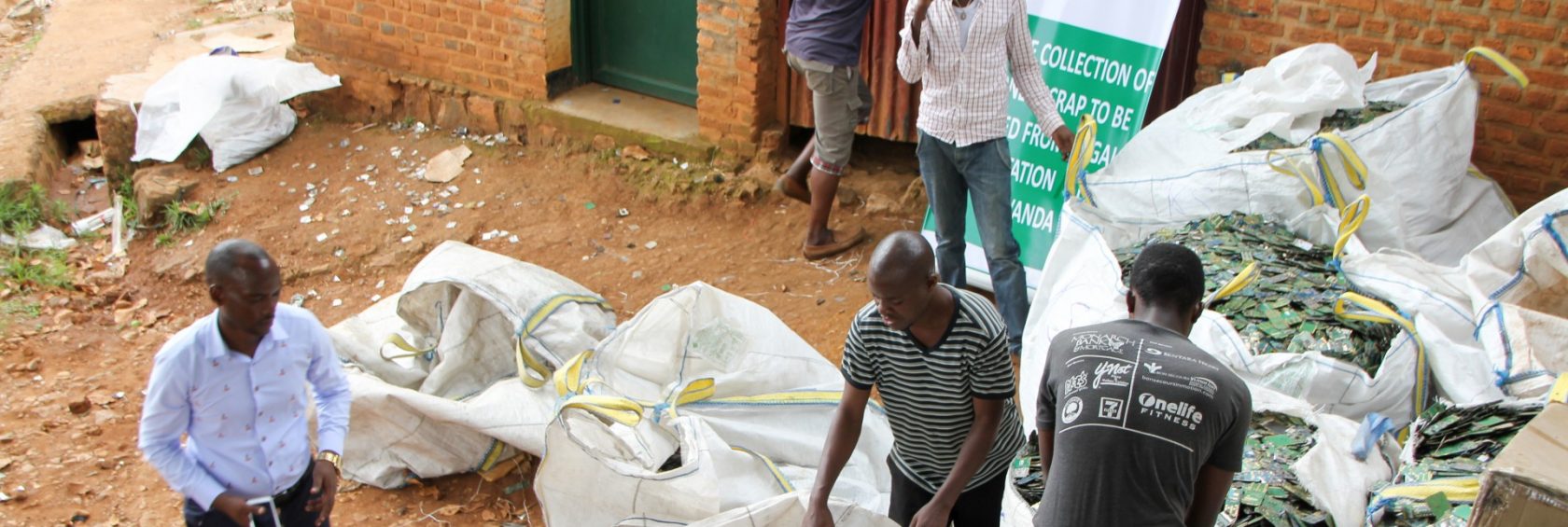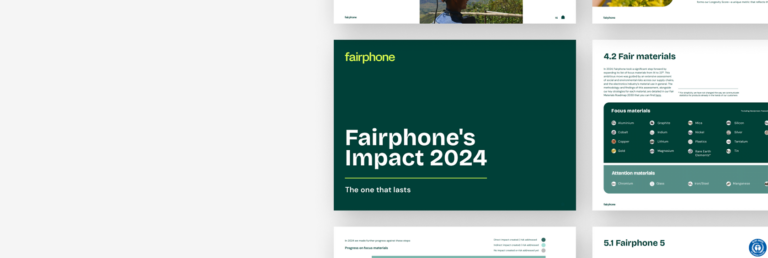Collecting used phones, from Africa to Europe
If you’ve been keeping an eye on our blog lately, you might be noticing a theme – we’re really interested in electronics recycling! In earlier posts we shared the results of our research on the best available options for recycling smartphones, especially in terms of recovered materials. Plus, soon we will publish a blog on the environmental impact of recycling. But there’s one very important step that needs to happen before any recycling can happen: collecting old phones.
In 2014, the number of active mobile phones surpassed the number of people on the planet. And this figure only includes the phones that are still being used – it doesn’t include all the unused phones floating around in people’s closets and drawers. Whether it’s because of sentimental reasons, data security concerns, lack of information or maybe even a touch or laziness, there seems to be a major barrier to people turning in their old phones to be recycled. To give a couple of examples, a recent survey found that 63% of Canadians have an unused phone at home. And in the UK alone, people are holding on to an estimated 76.8 million unused phones.
| Year | Electronics sold (Kg) | Electronics Taken Back (Kg) |
|---|---|---|
| 2013 | 4250 | 2782 |
| 2014 | 5950 | 93 |
| 2015 | 5270 | 3100 |
| 2016 | 6120 | 0 |
| Expected 2017 | 6460 | 10571 |
Why mobile phone recycling matters
Why do we care so much about what people do with their old devices? There are so many reasons it’s hard to know where to start. One aspect is environmental. If mobile phones and other electronics end up in landfills, they can leach toxic chemicals into the surrounding soil and waterways…which in turn can impact the health of local residents.
Electronics recycling is also closely linked to responsibility managing our natural resources. Smartphones can contain up to 46 different materials, including precious metals like gold and platinum, as well as more common metals like nickel and copper. No matter what their commercial value, recycling lets us reclaim these materials and reuse them in future products. It’s not only a smart way to move closer to a circular economy, it also reduces the need to mine virgin materials.
Finally, increasing “proper” recycling options helps reduce dangerous informal recycling practices. Much of the world’s electronic waste (e-waste) still ends up developing countries in Africa and Asia. Here, workers often use extremely hazardous practices like burning to extract the valuable materials, which can lead to a variety of health and environmental problems.
Collecting e-waste in Africa with Closing the Loop and ReCell
Improving e-waste collection is one concrete way we can increase recycling rates and contribute to addressing the issues mentioned above, step by step. As part of our overall reuse and recycling goals, we’ve been working with different partners since 2013 to collect e-waste in parts of Africa where there isn’t yet any formal take back infrastructure.

Fairphone has contributed to the collection of this phones by Closing the Loop in Uganda and Rwanda
The support of Fairphone 1 owners helped us collect 3 tons of waste phones in Ghana with Closing the Loop and Recell Ghana. The scrap phones were recycled in Belgium, and resulted in reclaiming a range of reusable materials, including 279 kg of copper and 2.68 kg of silver.
Thanks to Fairphone 2 buyers, we have launched new projects with these same two partners. With Closing the Loop, we are supporting the collection of phones in Uganda and Rwanda. By the end of last year, they had managed to collect two containers full of scrap phones…and then got stuck in a frustrating cycle of bureaucracy and paperwork. Happily, everything has finally been approved in the past few weeks. The containers left Kenya at the beginning of the month, and successfully arrived in Antwerp this week. Their next stop is Sims Recycling, located just outside of Antwerp.

Phones collected in Uganda and Rwanda being put into containers
Recell Ghana is still busy collecting phones in Ghana. They are taking a two-pronged approach, focusing on both collection and repair. I’ll be visiting Ghana in mid September to learn more about what’s in progress and how far they are with the repair side of the project. I’ll also be meeting other partners that we may be able to connect to this project. And of course, I’ll give you an update when I return!
How to recycle your phone in Europe
Besides Africa, we also want to improve phone recycling rates closer to home. Despite the fact that there are plenty of responsible options for getting rid of phones aren’t working any more, not enough people take advantage of them. So consider this a friendly reminder! When you’ve got five minutes to spare, please dig through your drawers and closets to find all your old mobile phones.
If your old phone is very outdated and/or no longer working, we encourage you to take it to a local drop-off point. Throughout Europe, you’ll often find a bin at mobile phone or electronics stores. If you’re not sure where to go, please take a look at this handy list of recycling options by country. And if your used phone is a very recent model, you may want to consider sending it in to Fairphone’s recycling program. These phones can be reused or recycled (depending on their condition), plus any potential revenue we receive will be used to support our social and environmental projects.
No matter where you donate your phone, taking the extra step to get it recycled makes sure all those precious materials don’t go to waste. It only takes a bit of effort, but if we all do it, it can have a major impact on making our industry more sustainable. Thanks for your help!



